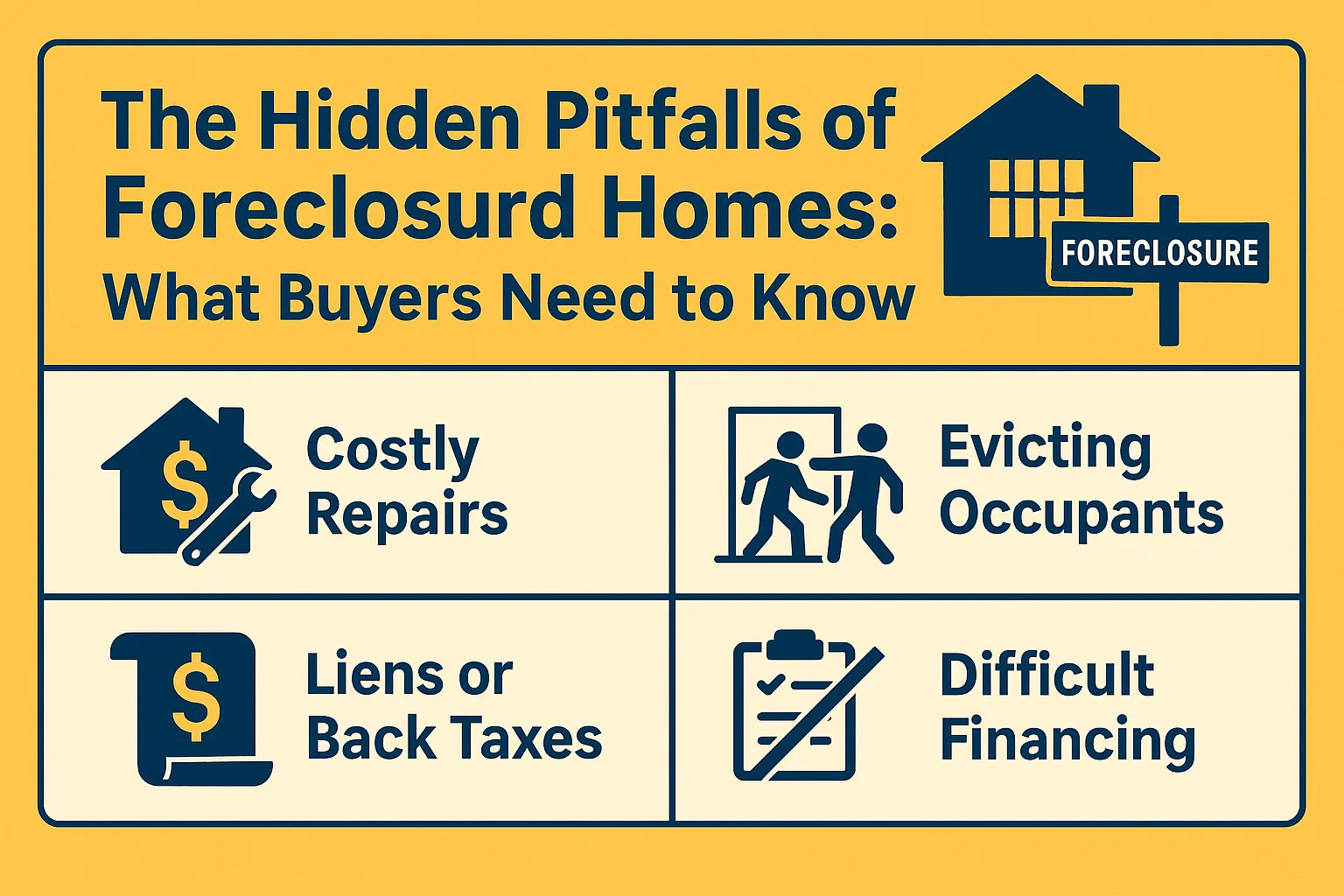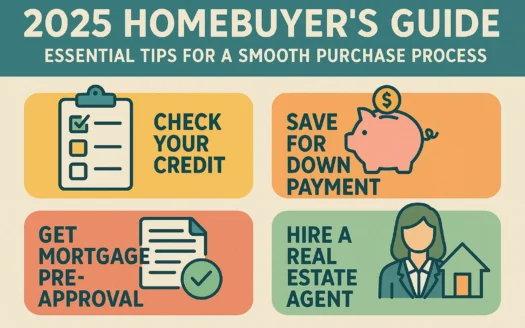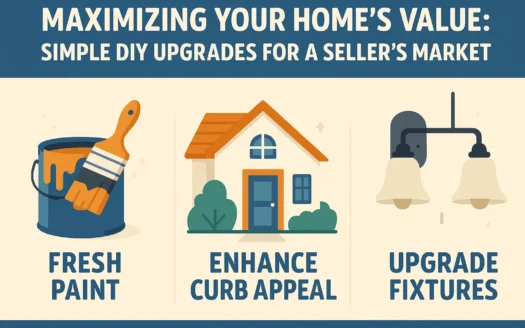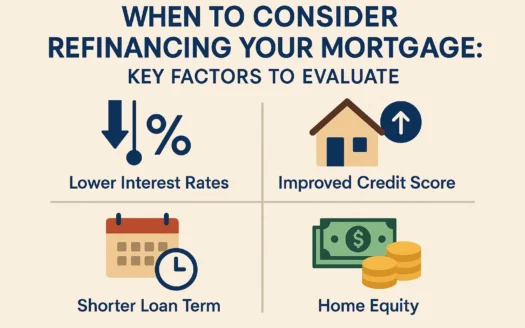The Hidden Pitfalls of Foreclosed Homes: What Buyers Need to Know
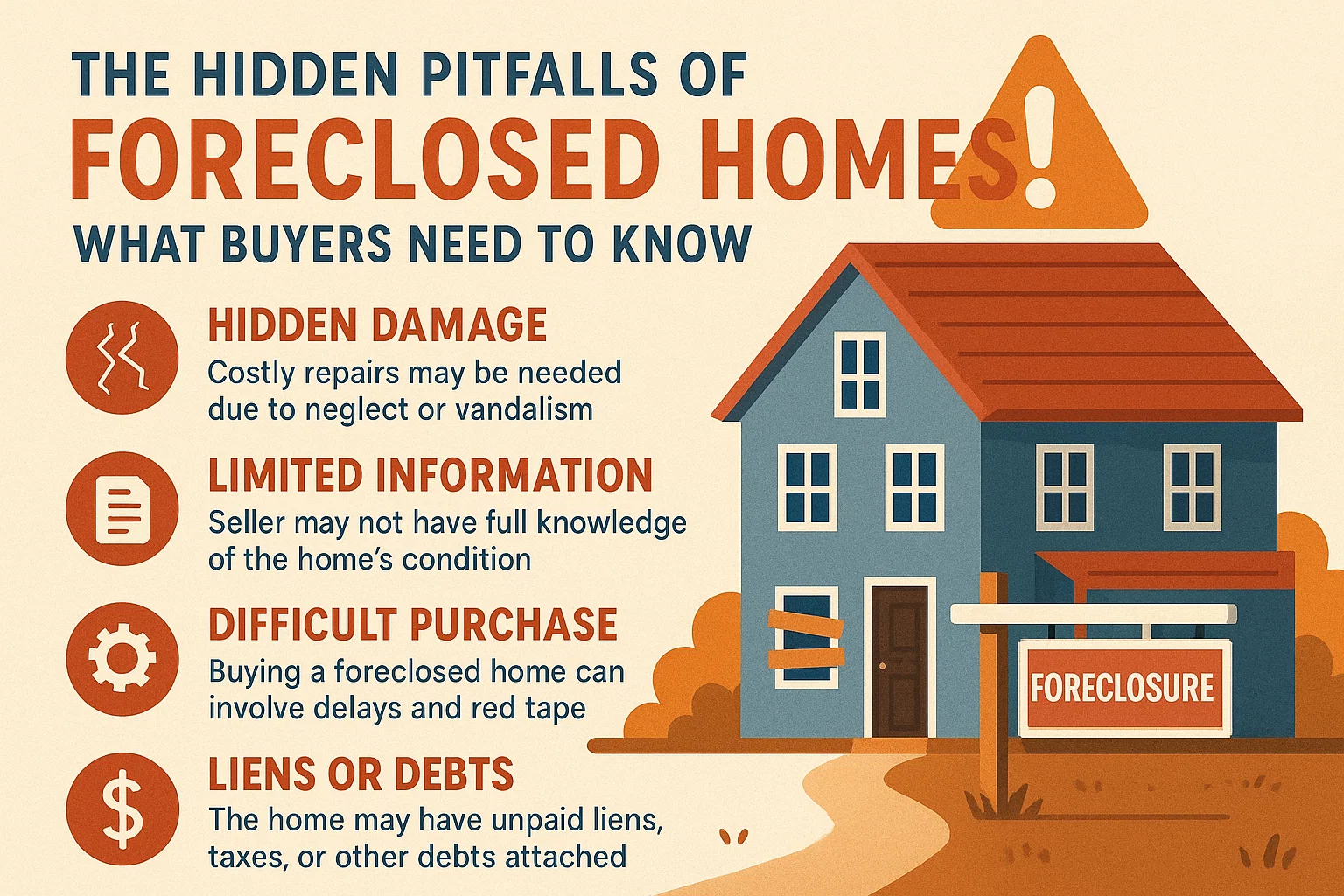
The Hidden Pitfalls of Foreclosed Homes: What Buyers Need to Know
Foreclosed properties often appear to be budget-friendly opportunities, but the reality can be far more complicated. While these homes may come with a lower price tag upfront, buyers frequently encounter unexpected challenges that diminish their perceived value. Here’s a closer look at the risks involved.
1. The Reality of “As-Is” Conditions
Foreclosed homes are sold in their current state, which often means significant wear and tear. Homeowners facing foreclosure rarely prioritize maintenance, and some may intentionally damage the property out of frustration. Missing fixtures, broken appliances, and even stripped plumbing (like toilets or air conditioners) are common issues. Buyers typically shoulder the cost of repairs, cleaning, and replacing essentials—expenses that can quickly add up.
2. Hidden Costs Lurking Beneath the Surface
Beyond visible damage, foreclosures may carry unexpected financial burdens such as tax liens or overdue fees. These hidden costs can inflate the total investment beyond initial estimates. Additionally, lenders often price foreclosures to recoup the remaining mortgage balance, which might not differ significantly from market rates for move-in-ready homes. Comparing local listings is crucial to avoid overpaying.
3. Navigating Legal Complexities
Foreclosure laws vary by state, and the process often requires legal expertise. Even with a real estate agent, buyers may need an attorney to address paperwork, liens, or ownership disputes. Skipping this step risks costly delays or legal entanglements.
4. The Eviction Wildcard
Occupied foreclosures introduce another layer of risk. Current residents—whether former owners, tenants, or squatters—may refuse to leave. Evictions can be lengthy and unpredictable, requiring court intervention and further legal expenses. Buyers should factor this uncertainty into their timelines and budgets.
5. Exploring Alternatives to Foreclosures
Newly constructed or move-in-ready homes often provide a smoother path to homeownership. These properties eliminate repair costs, legal hurdles, and occupancy disputes. Industry experts recommend weighing all options, as modern builds or well-maintained resales might offer better long-term value without the headaches.
Final Takeaway: While foreclosures can occasionally be worthwhile, thorough research and professional guidance are non-negotiable. Prospective buyers must scrutinize every detail—from property conditions to local laws—before committing. Sometimes, a slightly higher upfront cost for a turnkey home saves money, time, and stress in the long run.
